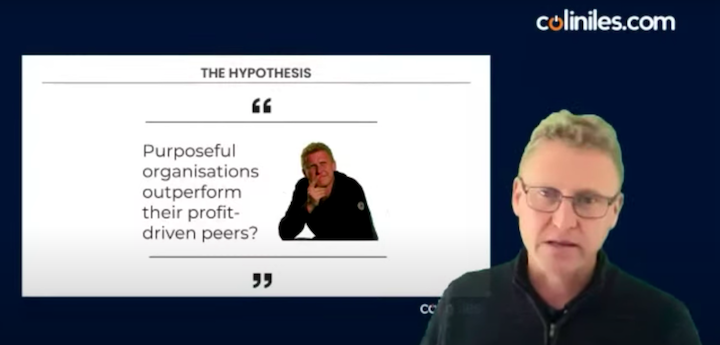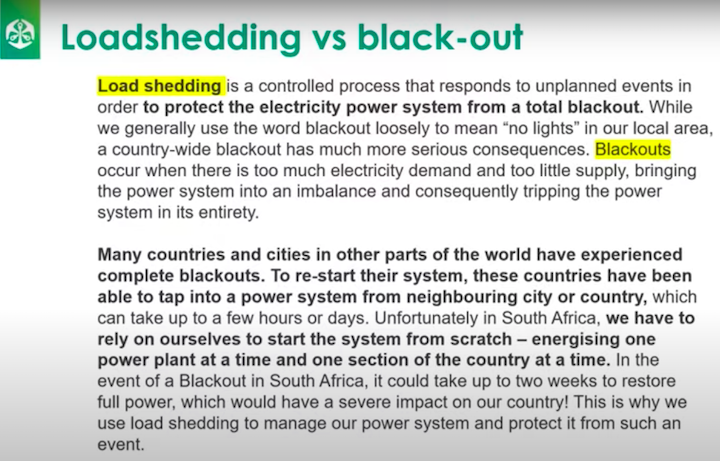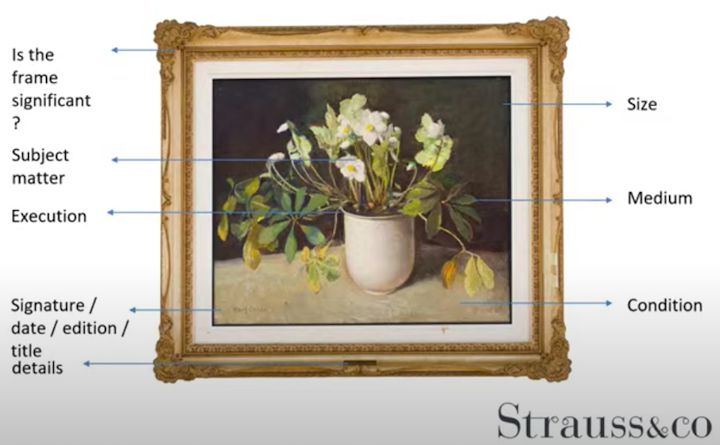
Reinsurance, grid failure and art feature at InsureTalk32
CN&CO Events hosted InsureTalk32 on 25 May 2023. The event was headline sponsored by Munich Re, and much of the content of the day focused on reinsurance-related topics.
MC Christelle Colman introduced the theme for the day, which was “Reinsurance outlook in the face of a volatile economy”.
“What a powerful theme for us to have today, because we can absolutely all relate to it,” said Christelle.
Our first speaker was Paballo Makupu of Munich Re, whose topic was “Building financial resilience: Let’s explore how reinsurance concepts could manage volatility”. Paballo unpacked the underlying reasons for the hardening insurance market, particularly where profit and loss (P&L) is concerned, volatility within the insurance space, more specifically speaking to underwriting margin and how reinsurance can assist with that, and lastly took a deep dive into some reinsurance concepts that can assist in terms of managing volatility.
She quoted a presentation from the United Kingdom’s Institute and Faculty of Actuaries titled “Using Reinsurance to Control P&L Volatility”, which in turn quoted the Global Risk Appetite Survey Report of 2017/18. These were the three main themes identified by the report:

Paballo highlighted some of the major events that have affected the insurance and reinsurance industries since the publication of the report, namely Covid-19, the 2021 unrest in KZN and Gauteng, and the KZN floods in 2022.
“Above and beyond these, there are smaller events that have happened which speak less to your cat events and more to attritional losses,” she said, listing these as high inflation, fraudulent claims, change in the IFRS standard (which introduces a lot more complexity and volatility from a P&L perspective) and everyone’s bug bear right now, load shedding. She then explained how reinsurance fits in:

She unpacked the concepts of proportional, non-proportional and structured solutions, before walking delegates through the impact and outcomes of reinsurance.
Colin Iles – a curator of thought leadership events that help to develop teams, relationships and ideas – spoke on the power of purpose in business and how “purposeful organisations outperform their profit-driven peers”.

“Think about what it is that your companies have set as your strategic goals,” he said. “And then maybe think about companies in the world, could in South Africa, that you admire and respect. Ask yourself ‘what are they trying to achieve?’ In simple terms, do you get the feeling that the companies that you love most are the ones that are really trying to go for profit, to be the biggest and the best? Or are they the ones that are trying to solve some fundamental problem for their customer base?”
He asked delegates to compare their companies’ purpose statements to their own personal journeys. “How are you going to become a billionaire?” he asked. This, he said, is a very difficult question.
“So when companies ask ‘how do you go and uplift your profit… and that’s your purpose… I think that’s really difficult. You’ve got so much choice. But what happens if you turn it around and say ‘how do I improve the lives of a billion people?’ How do you improve educations standards for a billion people? How do you reduce sexism across the globe? How do you improve opportunities for people who have been disadvantaged? These are purposeful questions and I think it’s a lot easier if you take those to come up with ideas.”
Profit, he says, is an outcome. It’s what comes after you’ve delivered on something beforehand. You want to be a company and an individual that inspires purposeful change.
Colin shared a few examples of companies that he believes have a purpose other than making a profit, including TransferWise, Unilever, Amazon, Pineapple and Apple, before speaking of the importance of being good to your suppliers, building good partnerships, and focusing on who your clients are.
Colin’s talk was followed by a video introducing the speakers at the upcoming African Insurance Exchange conference, which takes place at Sun City and online from 24 to 26 July. Check it out below:
If you haven’t yet booked for conference, you can do so by clicking here.
Rianet Whitehead, co-owner and editor of FA News and the “mom” of The Insurance Apprentice, was next on the agenda. She reminded delegates that the arrival of May means a few things: “It’s getting colder. It’s getting darker. And we will soon be in the middle of 2023.
“May also means the end of the CPD cycle and we can most certainly feel the chaos in the FA News office. Everyone is cramming for the last CPD hours.” Rianet issued a gentle reminder to complete your CPD soon and not wait until the last day.
She shared the highlights of the FA News webinar on grid exclusions and the possibility of grid failure. Headlines from the webinar included:
- The likelihood of a total grid collapse is minimal.
- Insurers are doing a lot of work in the background, just in case.
- Consumers shouldn’t panic, despite the sensationalism that the topic is gathering in the media (“… excluding FA News, of course!”)
- Policy wording are generally unclear on the matter
The webinar has been loaded on the FA News YouTube channel for anyone interested in watching it.
Rianet also touched on the most recent FSCA regulatory report, Lloyd’s SA’s 25th birthday, Institute of Loss Adjusters’ 40th birthday, the ninth season of The Insurance Apprentice (applications are now open for season 10), the June edition of FA News (which will be launched on the 14th), reminded delegates to register for the AIE conference, and gave a shout out to the industry calendar at www.thecalendar.org.za.
Stanley Sibande, a highly talented Zambian national now based in Cape Town, provided some soulful entertainment, before WP Pienaar, head of Old Mutual Insure Premier Agri and Risk Solutions, addressed the issue of grid failure – previously touched on by Rianet – as well as solar installations, hot work permits and the hidden dangers in policy wordings.

He posed the questions – are grid failure exclusions really necessary? Or are we just upsetting the market? He gave a high level explanation of how the grid works and its limitations, which result in load shedding. Interestingly, he said, load shedding is not unique to South Africa, but also happens in other parts of the world.
“Other countries can rely on their neighbours to provide them with electricity if there is a blackout,” he said. “Here in South Africa, restoring power in the even of a blackout could take up to two weeks.”
The reality is that blackouts happen quite often around the world, and WP shared some examples of recent blackouts where millions of people sat without power for up to three months.
“South Africa has one of the best systems in the world to manage and prevent blackouts,” he said. “But unfortunately we will have to endure load shedding for another couple of years until all the work on wind turbines and solar farms is concluded and the infrastructure has been upgraded.”

He spoke on the insurance implications and requirements for installing solar systems and the risks associated with solar, including fire, hail exposure, lithium-ion batteries, theft, LP gas installations, and generators feeding back into the system.
WP proceeded to talk on the topic of hot work, including facts and figures from the US, local examples of hot work fires, and permit myths. He concluded by highlighting a number of hidden dangers in business interruption policy wordings as they relate to the electricity grid.
CN&CO’s own Llewellyn du Plessis gave an insight into the world of CN&CO Events, InsureTalk and the InsureTalk CPD hub, which you can find at https://insuretalk.co.za/.

Did you know?… we currently get 3 500 registrations for InsureTalk each month. It has become the biggest online conference in the insurance industry in SA! We will be hosting a hybrid InsureTalk event in October, which will take place live and online. Register for this special session at www.cnandcoevents.co.za.
The last speaker for the day was Arisha Maharaj of Strauss & Co., who spoke on evaluating art and collectibles. African artists sales through auction have remained fairly constant over the past five years, totalling around $17-18 million. Thanks to Covid lockdowns, auctions went completely virtual in 2020. This took the number of Strauss & Co. bidders from around 250 per auction to almost 1 000. People can now attend these auctions wherever they are in the world.
“The way we value art is very important from an insurance perspective,” she said.
These are some of the characteristics that get assessed when putting together a valuation:

Interestingly, the back of the artwork tells as many stories as the front.
“Pricing is mostly established off an auction precedent,” she said. “We would look at what the current market for an artwork is, or for an artist, and then we track the values from there using a range of databases.”
Arisha walked the audience through a few examples of South African artists’ work, how they were valued and what they eventually fetched on auction – with some interesting insights into the life and times of a few artists and how these impact on the value of their work. She provided a few tips for buying art – do your research, ask for advice, buy for the long term and buy what you like – and a few tips on insuring your art – get a valuation done by professionals in the industry and update your valuation regularly.
Christelle closed proceedings with the great news that there is still one partnership slot available for 2023! If you are keen to find out more, contact Llewellyn – llewellyn@cnandco.com
If you missed the webinar and would like to watch it in full, click play below:
InsureTalk33 will take place on 22 June 2023 from 10am to 1pm. Visit the CN&CO Events website to book.





